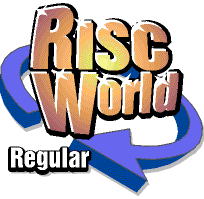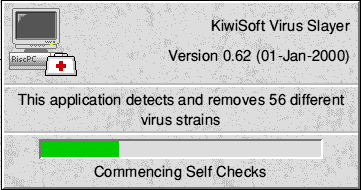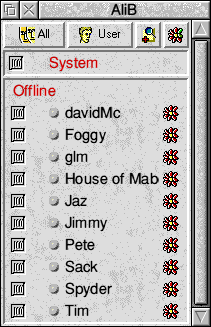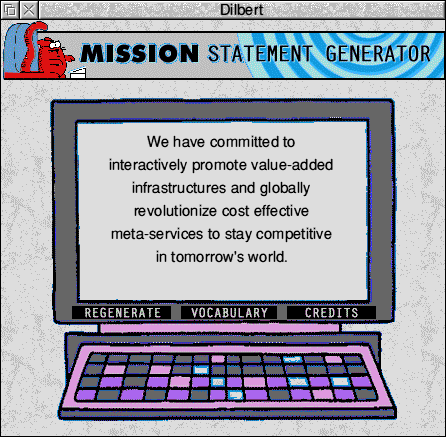



PD World
Alasdair Bailey takes RISC World readers through the world of PD and Shareware.
Welcome to RISC World's first PD/Shareware column. Each issue, we'll be bringing you the latest news from the scene as well as looking at some of the old favourites which have been making RISC OS life easier for many years now. It's great to see that the RISC OS community still possesses a good bunch of committed PD coders.
Before I kick-off, I feel an introduction is in order. I'm Alasdair Bailey and I've been heavily involved in the RISC OS market ever since I founded Acorn Arcade, the gaming website back in January of 1998. At the end of that year, I was offered work on Acorn User and have been there, ranting about games ever since. Some of you may have also seen my work in RISC User from time to time. Not content with all that, I also find time to edit IT coverage for Birmingham University's student rag; RedBrick.
My own interest in all things free started with the old Datafile and APDL catalogue discs back in '94. After inadvertently stumbling upon the world of PD, I was just amazed by the sheer quantity of material which was available for absolutely nothing more than the price of the discs it came on. I was hooked.
Of course, the medium soon changed and like many others, I joined the Internet and watched as the old PD library giants diversified into other markets, merged, then diversified some more (one PD library even owns a CD-ROM based magazine these days, I'm told).
Most will agree that the Web has been a good thing for the PD/Shareware scene. Authors can now tout updated versions in a matter of seconds instead of having to send updates to a PD library then hope that people will pay again to get hold of copies. That's not to say the traditional PD library is dead. They still exist to serve the unconnected, though now they represent a niche in the market rather than the mainstream.
Any authors out there who are looking for a platform to tout their wares, do please get in touch. My mailbox is always open and all are welcome to get in touch with details of projects under way, updates to existing apps as well as those of you who are looking for help with just about anything really. The e-mail address is pd@riscworld.com, but please don't send large files without prior warning. Letters and stuff on discs are also welcome addressed to me via the editorial address.
Slay bells ring...

Slayer is a fairly new addition to the anti-virus stable. It was officially released last September but has been under development for quite some time now. This homicidal Freeware application has already overtaken the shareware VZap in terms of speed and features and is now hot on the trail of Killer, the commercial product from Pineapple Software.
The current version detects and removes 56 strains of virus; not as high a number as Killer boasts but it's probably safe to say that many of the very old viruses that Killer still checks for are the computer equivalents of the smallpox virus - there aren't many copies still in existence but an outbreak is still a remote possibility. Slayer's author claims that Slayer only scans for viruses he knows to be in the wild.
The latest version of Slayer is always available from the Kiwi Software (UK) website at http://www.kiwisoft.co.uk/. There's also a copy in the SOFTWARE directory on this CD-ROM, time-limited to the end of March 2000. Updates are still coming once a month or so and versions are cunningly time-limited to make sure nobody's still using an outdated copy (it's important to emphasise that this isn't the same as a time-limited demo - Slayer is Freeware, and that the copy doesn't stop working after this date, just warns you that a more recent version should be obtained). It would be nice to see a Windows-esque automatic update option to check for new versions on the Internet to accompany this though.
I Seek You
ICQ (pronounced I-seek-you) is an all singing, all dancing internet messaging system. The system isn't just limited to Windows users either. A well-developed Mac port of the client also exists and even us humble RISC OS users now have our own version.

Upon loading any strain of the client, the user is confronted with two lists of contacts; one containing users who are online, the other those who aren't. Building up a contact list is a simple affair. When a user registers, he/she is assigned an 8-digit UIN code which is used almost like a phone number. Other users may use this number to add you to their contact lists and likewise, you use such numbers to add others to your book.
When a user goes on-line, the client program contacts the central ICQ server and lets it know the user is available. This may all seem fairly daunting to begin with but, take my word for it, it's very simple and intuitive in practice. Once you're all set up, upon connecting to the internet, you'll be shown a list of your friends who also happen to be on-line at that time. You can then send text messages and URLs to people in real time. If a user is off-line, it is still possible to send messages; the data will just be stored on the main ICQ server until they next connect.
The RISC OS verson of ICQ from Angelo Melis is now at version 0.17. Early problems with authorisation and resolver modules have now been addressed leaving an almost fully-featured client. The one major feature not yet supported is real-time chat. This allows users to chat to each other in real-time in a similar way to the dedicated chat network, IRC (Internet Relay Chat).
ICQ is well worth getting into, the Acorn ICQ website may be found by following the links from http://www.vigay.com/riscos/icq/, which will always include the latest release of the client as well as handy info about its use and future. At the time of writing, the latest release is 0.17.1, which is included in the SOFTWARE directory on this CD.
Security Matters
Those of you who need to protect files from prying eyes need look no further than Nat Queen's website at http://web.bham.ac.uk/N.M.Queen/pgp/acorn.html. As well as offering the RISC OS port of PGP, the e-mail encryption system, the site also boasts a wide range of other security-related Freeware for RISC OS.
I couldn't help but see Nuke, a program designed specifically to overwrite the free space left by the deletion of a file so as to rule out recovery by any means. When a file is deleted, only the reference to the file in the disc's map file is removed; the file still remains physically on the disc, it's just no longer labelled. This enables cunning utilities such as Oregan's DiscAid to recover deleted files provided they've not since been overwritten by another operation.

If, for example, you're selling your hard drive second-hand and don't want others to gain access to your data, Nuke is a handy tool. The front-end even includes an option to cover the space once occupied by the file with a user-definable string of text. This is really a novelty feature because random characters do the job just as well, but a suitibly cheeky message will put anyone who is sly enough to look at your discs using a sector editor in their place. For the ultra paranoid, there's even a military-level option which instructs the program to overwrite the file space up to 35 times using a range of different fill methods so as to rule out any possibility of even government labs getting hold of whatever dodgy stuff you once stored on your machine.
As you might imagine, all of this has its hazards. If you accidentally Nuke a file, you're never going to see it again. Both the program itself and the help texts state this very clearly so don't come crying to us when you Nuke your granny; we can't bring her back.
Nuke is included in the SOFTWARE directory on this CD.
Along with the various file encryption programs comes another small but useful utility: RNDPass. RNDPass generates pass-phrases by randomly selecting groups of words from a supplied word list. The list supplied contains almost 89,000 entries so is in no way limited. The application can also be set up to include smilies, special characters and case changes in addition to these words.
RNDPass comes highly recommended for those of you who like to set passwords as your date of birth, car registration or house number. Passwords and phrases are becoming ever so common these days with the rise of internet shopping, phone banking as well as e-mail and other services which require authentication. You simply can't afford to have them all set up as 'Acorn' as someone I once knew did.
RNDPass is also a copy in the SOFTWARE directory on the CD.
Corporate calamity

Fans of the newpaper cartoon strip, Dilbert, and the resulting spin-off TV series will love this little gem. The only purpose it serves in life is to randomly generate company mission statements. Yes, it's another Dilbert-esque stab at US corporate culture but hey, it's all done in the best possible taste! Anyway, here's RISC World's very own mission statement, courtesy of Dilbert:
We must completely initiate mission-critical data or assertively initiate multimedia-based content to meet our deadlines.
Frighteningly relevant, I'm sure you'll admit. Cheap jokes aside, there's a copy of Dilbert by Paul Vigay in the SOFTWARE directory on the CD for you to try for yourself.
Alasdair Bailey